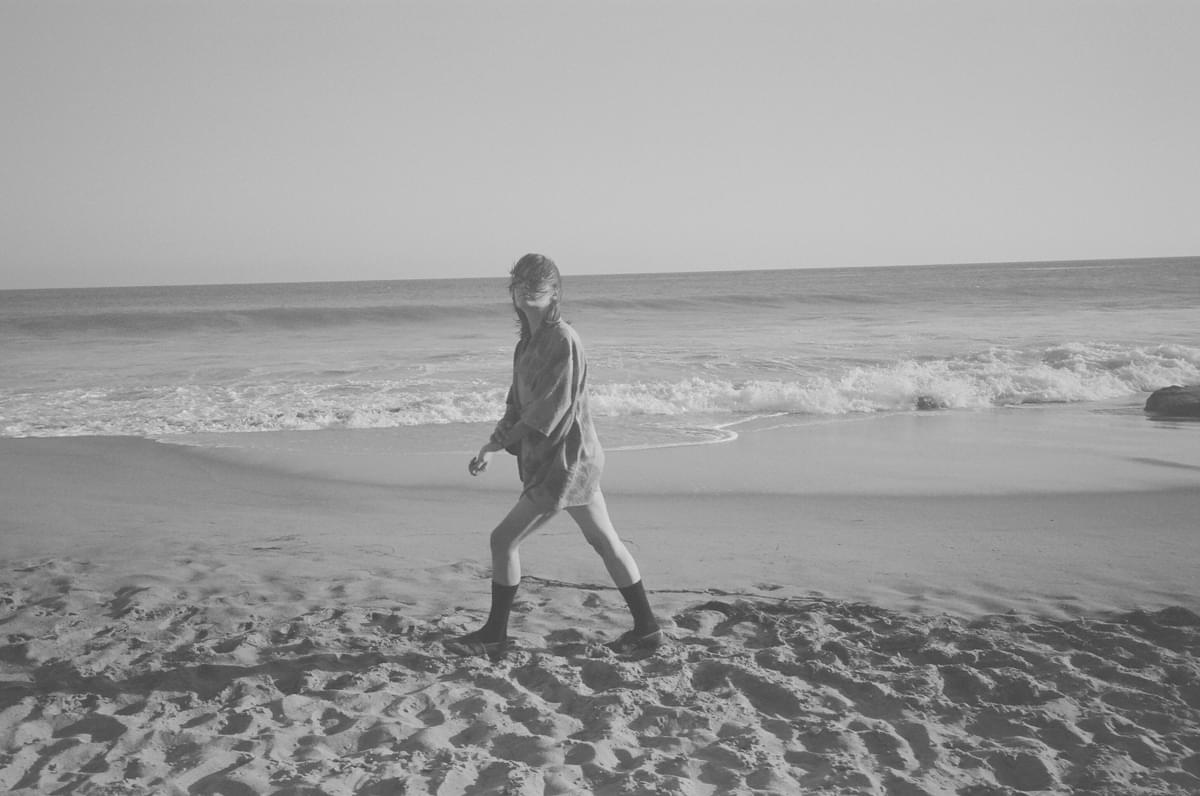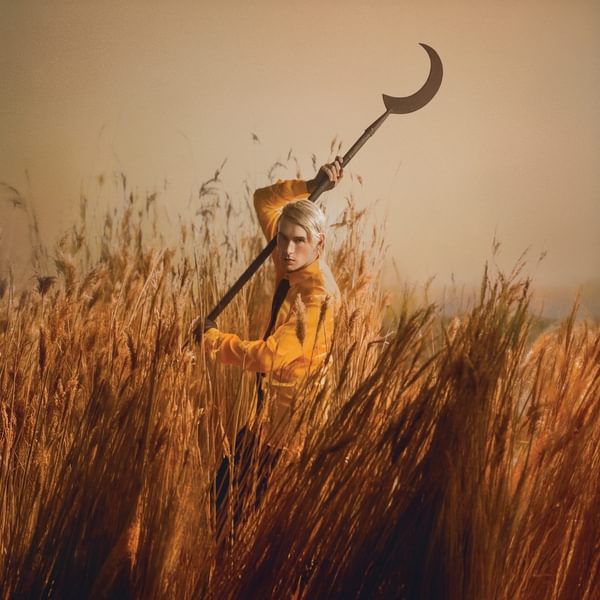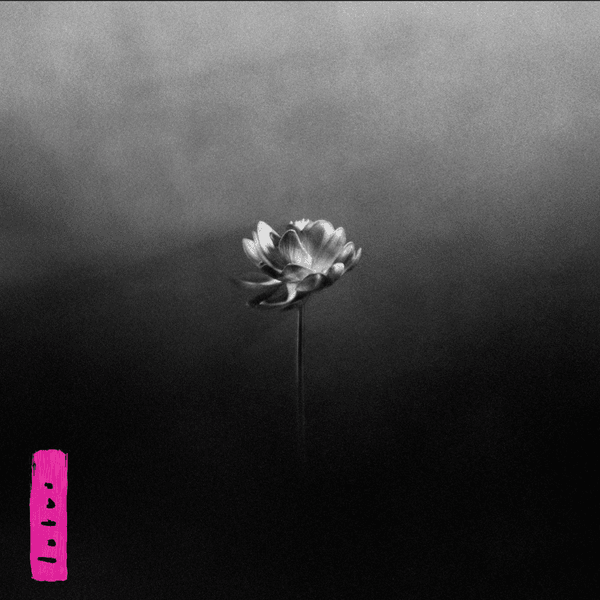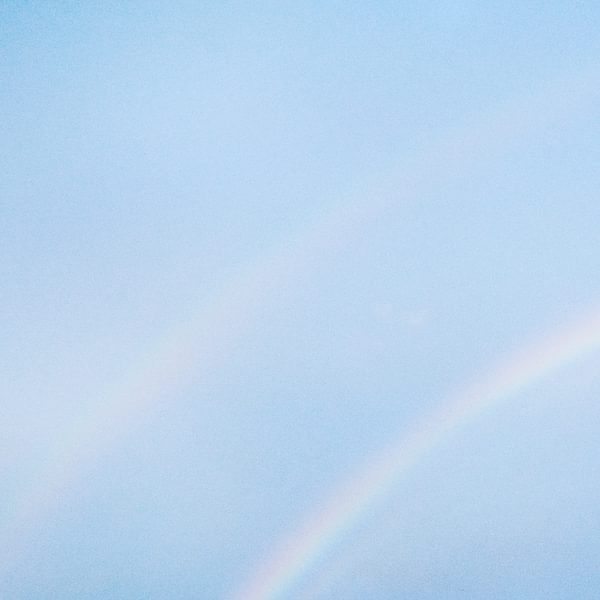
Something Changed
Everything changed for Cate Le Bon on her fourth album Crab Day. She tell Ed Nash about challenging herself and her songwriting methods.
How does a songwriter write a song? It may seem like a simple question but with an artist capabale of such wonderfully complex creations, the answers are going to be far from simple. Cate Le Bon gives Ed Nash educational yet equally opaque answers.
The art of writing songs means different things to different artists. For some it’s an act of catharsis, for others it’s entertainment, but often with the best songwriters it’s simply part of who they are, something that they have to do. Over the course of our conversation the way Cate Le Bon describes the art of songwriting places her firmly in the latter category. “I love it. I love making music and I love making music with other people”, before adding the important caveat, “Whether there’s an audience or not, I’d still be doing it. It’s important to me, but I don’t expect it to be important to anyone else, it’s just an expression and sometimes it’s not necessary to moralise it.”
Le Bon, unapologetically, writes to please and challenge herself and in doing so occupies a musical universe that’s entirely her own, making records that are instinctual. Having built a head of steam with Me Oh My in 2009, CYRK in 2012 and Mug Museum in 2013, on her fourth album Crab Day, something changed. Inspired by her collaboration with White Fence’s Tim Presley as DRINKS on last year’s Hermits On Holiday, Crab Day sees Le Bon revelling in musical abandon and as a result she’s never sounded better.
It’s just under a year since I interviewed the pair of them about the record. They constantly finished each other’s sentences and took the piss out of each other, but above all there was an obvious sense of simpatico between them. And not just as songwriters, Presley rightly spoke with reverent awe about Le Bon as a musician. Significantly, it was a record - and more importantly a process - that made Le Bon question how she wrote her songs as a solo artist. “Making that record with Tim was hugely important in terms of making Crab Day. I’d been touring for so long, feeling really grumpy and jaded; I had a really sucky attitude on everything. Then I realised that I make music because I love to, not because I have to and it should be a really wonderful, incredible time spent.”
With DRINKS the musical approach was improvisation, they sat down with their guitars and played whatever came into their heads, recording the parts they liked onto a four-track and then interpreting the tapes in the studio. Whilst she returned to her usual method of writing on Crab Day – music first, lyrics later - Le Bon decided to retain the spirit of the sessions with Presley, melding her art and discipline with a sense of abandon and glee. “I just remember thinking ‘I can make a solo record with that attitude’. We laughed so much, we knew that not many people would like the record; actually I guess we didn’t even think about it. As long as what you’re making is authentic, you can stand by it.”
Her starting point for writing her solo material is visualisation, which she says is a difficult process to explain. “I almost have a strange mental four-track where you know the positioning of things; you can almost see them as a track, where everything has its place. You can visualise that, it’s just something about the sequencing of the music and being able to see it as this visual, linear thing.”
For the first time in her recording career Le Bon made demos of sorts for Crab Day, which were as idiosyncratic as the songs themselves. “The demos are about thirty seconds long and they make sense to me, but nobody else!” She also expanded her musical palette, experimenting with order and variety of instruments. The title track of Mug Museum was written on the piano and that certainly played a big role on Crab Day. “This time around I took things from the guitar and I took things from the piano as well. I have to work a little bit harder to make things work on the piano, it makes you think and write in a different way. So the songs were mapped out in my head and I had vocal melodies, just not lyrics.”
"The record in essence is an ode to nonsense and the fear of growing old"
Once Le Bon has the feeling for the song in her head she writes the music, which provides the springboard for the lyrics. It’s a symbiotic approach, rather than matching a pre-written lyric to a tune or vice versa. “The sequence is still the same, it will always be the music that comes to me first and the lyrics will be knocking around there somewhere.”
By her own admission she finishes the lyrics very late in the songwriting process. On Mug Museum the words were put together in the middle of the night before the songs were recorded, written on a whiteboard, but with Crab Day she made this tardiness part of the plan, “as opposed to telling myself it would be different and it not being different. As hard as I try and battle with myself to have them in hand, it seems I can’t sit down and commit. Instead of lamenting myself and spending three hours screaming at myself - ‘Why have you done this again!” - it was a far nicer experience.”
She recorded Crab Day at the idyllic Panoramic House studio on Stinson Beach in California, which helped with the lyrical part of the songwriting process. She describes looking through the windows of the studio at night, as the moon hung over the ocean as “absolutely the most beautiful sight you can imagine. It was deathly quiet and a really incredible time to be sat down writing lyrics.”
Her method for writing the words is organic. She has not just one, but three notepads in which she put the words to paper. “I don’t know if there’s any benefit to this, it’s just how I do it - it just makes me feel better!” She starts by writing the words in one of them, copying out what she’s written into the next and then refining them again in the third. “I guess it’s just feeling what the next thing should be. I’ll be sat with these notepads and a pile of books I’ll skim through to find words that move me or make sense within what I’m writing.” She sees this part of the process a collage, where often she’ll know the sound and shape of the word she’s looking for and the feeling of it. “I guess I’m just foraging for those words and then everything falls into place.”

The words aren’t written in any particular order in the notebooks, with different drafts for each song spread across all three of them. “It’s just mayhem; usually it’s waking up the next morning and putting it all together in an almost comprehensive pile that I can read.” Whilst she’d completed some of the lyrics before recording, others were finished at the point she was getting the levels on the microphones for the vocals. “You’re still doing a little bit of gardening on them; it goes right down to the wire.” Regardless of when they’re finished in the songwriting process, the words go through a gestation period, often starting as soon as she writes the music. “It’s not all brand new stuff written the night before, it’s things pieced together. There are things rattling around for a long time, so it’s just fitting them all together.”
Once she had the music and a draft of the vocal melodies ready she assembled her regular collaborators and fellow Welsh countrymen Stephen Black and Huw Evans (aka Sweet Baboo and H. Hawkline) and Warpaint’s Stella Mozgawa to finish the songs, rehearsing for five days to put the bones of instrumentation together. All three of them were as integral to the finished record as the songs themselves, she explains she wouldn’t dream of making a record without Evans or Black and speaks of their contributions to the songs with unbridled admiration. “Steve is an incredible bass player; he knows what he can’t get away with and what he can get away with, from years of me ear-bashing him for doing disgusting Paul McCartney bass-runs. And Huw just came into his own on this record, the guitar lines he’s playing are just some of the best I’ve ever heard.”
The addition of the phenomenal Mozgawa proved to be the perfect final piece to the band and the songwriting jigsaw, slotting seamlessly into the tight-knit trio of Le Bon, Black and Evans. "It was if as we’d been playing with her for ten or fifteen years. She’s one of the most joyous people to be around in general and in terms of making music her enthusiasm is really infectious. She’s one of the easiest musicians to direct, because she has no ego, nothing to prove.” Le Bon recalls asking Mozgawa to just hit a crash cymbal repeatedly for eight minutes on the wondrous “What’s Not Mine”. “There was no sulking, there was no “but I’m one of the best drummers in the world!” She’d go “Watch this…” and play it with the most finesse you’ve ever seen anyone play.”
"I’d been touring for so long, feeling really grumpy and jaded; I had a really sucky attitude on everything. Then I realised that I make music because I love to, not because I have to."
Whilst Le Bon had the shapes of the songs in her head when they started recording, having such a formidable group of musicians behind her enhanced the songs even further and as much as Le Bon directed the songs, her players were given ample space to alter them. “You have a feel in your mind for what you want, but sometimes you’re way off. Stella would play something I wouldn’t even think of, which everyone bounced off of and with some of the songs we changed the time signature. When you have a band as good as that at your disposal you can change things and try things out in a very quick and functional way, but I think it’s more playful. For me the playing on Crab Day is more joyous and more madcap, but I was more precise with this record.”
The idyllic setting enhanced the feeling of abandonment Le Bon was looking for, providing a space where the players could embrace the spirit of Crab Day’s songs. “It was one of the most joyous, productive and incredible times of my life, to be in this amazing place with these amazing people and being lucky enough to play music.” They worked so well together the songs were finished very quickly; the music was recorded in a week, Le Bon then stayed on to finish it off with eight days for the overdubs and vocals.
Crab Day’s ten songs are a combination of the most muscular sounding and tender songs she’s written. I tell her one thing I took from the record was that the mood of the lyrics mirrors the feeling of the music for each of them, such as the freneticism of “Wonderful” and the more melancholic “Love Is Not Love”? “Yes, I’d say ‘Hats off to the subconscious’ for stuff like that. Even though the words aren’t necessarily fully formed when I’m writing the music, I’ll know what the songs are going to be about or alluding to and I’ll have certain lines that I build the song around.”
Whilst the writing and recording process prompted all four of them to summon - in the face of stiff competition - the most joyful playing on a Cate Le Bon record to date, some of the songs are the most heart-wrenching she’s ever written. The aforementioned “What’s Not Mine” is an acceptance of the sometimes imperfect nature of love. I start talking about the fact it’s not a typical relationship song, at which point Le Bon finishes my sentence with “Yes, existential! The record in essence is an ode to nonsense and the fear of growing old, thinking ‘Oh God, I’ve just been fabricating nonsense.’ There’s a comfort and a great fear in it and they live side-by-side. Hopefully a push and pull comes across, where you have a song like “Wonderful” which is a deranged love song and a song like “What’s Not Mine” which is almost like an existential crisis, it’s the rollercoaster.”
Such push and pull comes across in spades on Crab Day. There’s a balance of some brilliantly abstract words, such as the line on “We Might Revolve” “I was a human satellite; I wasn’t even in the room”, counterpoised with the words of “Love Is Not Love” which still retains a sense of the abstract - she compares love to a coat hanger – but also the poignant lyric “I made the air move in arrows, but I don’t know how to love you.”
“It’s the light and dark, it’s so joyous and playful but there’s an opposite side to that and I think that a lot of the guitar lines that Huw plays, some are absolutely heart-breaking. Obviously you can interpret it; it’s up to the listener. For me it’s about taking the word love and almost being the word itself, it’s like a symbol. You’d imagine that everybody knows what that word means, yet the spectrum of use for that word and how it means wildly different things for so many people was the genesis of that song.”
When we talk about Crab Day’s title track and its opening line “It doesn’t pay to sing your song” she again emphasises she doesn’t want to spell the meaning of the songs out and would rather leave it to the listener to take what they will from them. “That line could mean a number of things! Tim Presley is convinced it’s a dig at him, because I played a tour for him and the pay wasn’t very good, it’s not about that, although I enjoy that he thinks that. It depends what you think the currency is, Crab Day is an invented holiday, there’s ambiguity all around.”
"I feel so attached to this record, I felt like I should give it a go before just going ‘Gruff! ... Although it would probably have been so much better if I’d have given it to Gruff!"
Having recorded the songs, she had to decide which of them would make the final running order and in the process omitted Presley’s favourite song from the Crab Day sessions, “Aside From Growing Old”. She had a similar experience with Mug Museum, where her friend Phil Collins (the Turner Prize nominee who created the films for Crab Day) told her that his favourite song was “He’s Leaving”. “I’d cut it from the record. He said ‘Well, I understand, it’s ‘kill your darlings’.”
The phrase originates in theatre, where what is a seemingly pivotal scene unbalances the narrative. Collins told her “’Everything else is unsettled and off-kilter and no one understands why. Then as soon as you make the decision to omit that scene everything else has space and falls into place’. With “Aside From Growing Old” I knew that it was the thing to do. It sounded great but it was disrupting the flow of everything else. So instead of battling to crowbar it in, you just have to go ‘You know what? We’ll give it the old elbow.’ Sorry Tim!” Having called in her friend and one time mentor Gruff Rhys to finalise the track-listing for CYRK and Mug Museum, this time Le Bon decided to put it together herself. “I feel so attached to this record, I felt like I should give it a go before just going ‘Gruff!’ She then adds, “Although it would probably have been so much better if I’d have given it to Gruff!”
Another element that reinforces the mix of structure and abandon of Crab Day is the brass arrangements; whilst there were smatterings of brass on Mug Museum the brass pieces are more integral to Crab Days songs. “I think it’s just that there were a lot more pieces that were written this time, as opposed to freestyling them on Mug Museum, it’s a lot more structured on Crab Day. I think the record as a whole is a lot more structured and there’s less moments of mayhem, everything has more of a pocket of its own.”
When she talks about where her songwriting is going in the future it isn’t in the context of how her records will fit together as a body of work, rather just doing what she wants to. “I know what I want to do next; on my next record I think it’ll be more intimate. I certainly want to do another record with Tim, I love making music with him.” Before we hear anything new from DRINKS - she’s posted a teaser about their next record on Instagram – Le Bon found time in her schedule to produce Presley’s forthcoming solo album, The WiNK, which also features Mozgawa on drums.
When I put it to her that such industry is rare, that songwriters usually take two to three years to produce a new body of songs, Le Bon says she just doesn’t work like that. “I don’t think writing one record a year is prolific, it’s just what I do, you know? I love recording and the excitement that comes from writing, playing and putting all that together. It’s always a train that I think I want to step off of, but you just think “Oh, stay on the train a bit longer, you’re having a nice time.”
Rather than fret about the legacy of her songwriting, Le Bon has more of a carpe diem attitude. “When it’s time to go for the long sleep I don’t think I’ll be sitting on my deathbed going ‘Oh my God, Mojo didn’t like my fourth record that much’, or ‘Maybe it wasn’t the right move for me.’ I’d rather be thinking ‘Oh my God, how fucking lucky was I to be with all these wonderful people and to go to Los Angeles with Tim to make a record?’ I think it’s really easy to forget all that stuff.”
"It’s purely a record that was made in the vacuum of it being about the people who were making it. We were on a mountain, nobody knew we were there and it didn’t matter"
Such abandon has also seen her become a member of Banana, an improvisational, instrumental ensemble where Le Bon, Evans, Black and Mozgawa are joined by Josiah Steinbrick, (who co-produced Crab Day) and Red Hot Chilli Peppers’ Josh Klinghoffer. They were the support act and her backing band for the initial batch of shows on the Crab Day tour. “I think it’s something we know has very limited shelf life, because of everyone’s schedules. We recorded a session for a radio station in Los Angeles on an 8-Track, which sounded beautiful but it’s a hard band to get together, we’re scattered across the globe” When we talked about Hermits On Holiday last year she jokingly described its improvised nature as “Not, not Jazz” but when I say that Banana’s music flirts with freeform jazz it draws a laugh from Le Bon before she adds “Sure! It’s not ‘Not, not jazz, but it’s… I don’t know… Instrumental? That’s as confident as I can be! It’s ‘Instrumental!’
As we draw to a close she tells me Crab Day is the favourite record she’s made. “It’s the one that I love the most, for lots of different reasons but I think that the readjustment of attitude for me has just been a joyous thing.” So it’s less ‘Will people like this?’ and more ‘’Will I like this? “Yes, totally. It’s purely a record that was made in the vacuum of it being about the people who were making it. We were on a mountain, nobody knew we were there and it didn’t matter. You’re there making something that’s really important to you. The only reason to be doing something like this is for yourself, because you can’t really expect anyone else to care.”
Well, lots of people do care. This independence of spirit is why Le Bon’s admirers grow with each record and more importantly, why this masterful songwriter writes songs like no-one else. To paraphrase the writer, it does pay to write your songs.
Get the Best Fit take on the week in music direct to your inbox every Friday

Patrick Wolf
Crying The Neck







